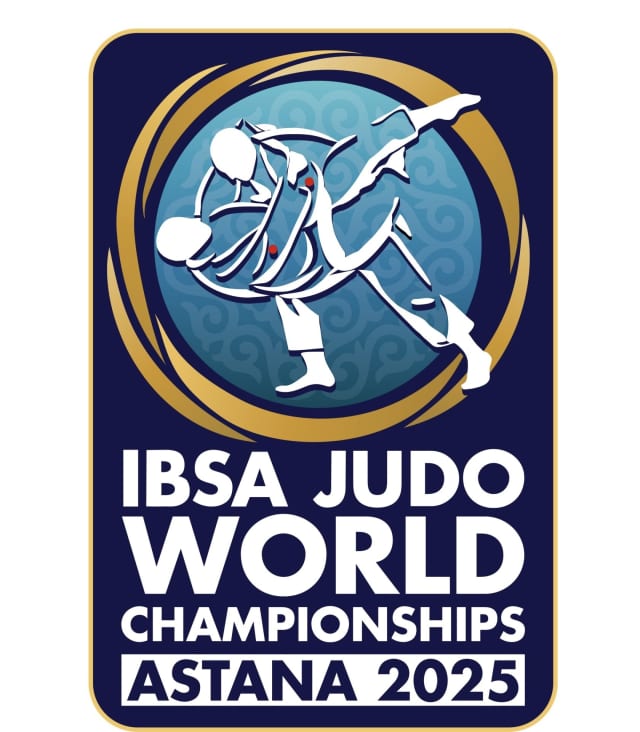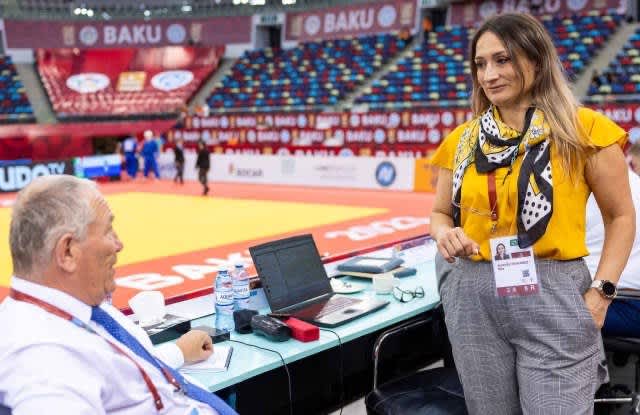As IBSA Judo Sport Director, Sara is faced with huge challenges every day and every challenge must have a solution, one way or another. “The biggest issue is that we are growing very fast!” IBSA Judo has exploded in recent years, thanks to the work of Sara, IBSA Judo Chair Janos Tardos and others who have become advocates for Para judo and its increasing number of athletes around the world.
“Our goal is to be as similar to the IJF events as possible. We need to have the best event possible, not just because of the event itself but because it’s our job to do our best for these athletes who train to be the best in their categories. They deserve the highest level environments. We have a small staff and budget and so the IJF is helping us a lot. Their impact is improving everything a great deal; the collaboration is very important. Every time we run these events, they are bigger than the last."

"Our solution to the growth rate is to make small but efficient changes within management systems, such as at the random weigh in. We don’t have the staff for an all-morning process like the WJT events but the teams in VI judo always arrive together at the competitions and stay from the morning onwards. Therefore, at one hour before the start we open the random weigh in and it’s almost always complete within 15 minutes.
Additionally, we have the weigh in, like the IJF, at the official hotel on day one but on day two we conserve staff and transport by doing the weigh-in only at the venue. Everyone is there together anyway. We have to find professional solutions for everything and we need to learn to create the right result but from our small budget.
The next challenge we have is the level of coach education.” The IBSA Judo coaches are completely committed to ensuring their athletes can access every opportunity safely and in the best shape but the whole environment for VI athletes is still not on a par with mainstream environments. There is a lot of development to do and doing that work in the area of education is essential.
“We have an informal meeting with the coaches at every IBSA event. There’s no dress code and an open, discursive atmosphere. We promote education and help them to improve their working practices and understanding for high level competition. In the past coaches might not know about backnumber rules or the random weigh-in or other things. When we deliver a short review of the rules and offer practical guidance for how to move around the competition, their improved education helps to solve the efficiency of the event. I hope in the future we will not need the coaches’ meeting but now it’s good and necessary and solves a lot of logistical issues.
Another challenge I can talk about is how to manage the team event. I’ve fallen in love with the mixed model that the IJF uses and we can see how the women’s level has improved in several countries because of it; it has been instrumental in the push for equality in our sport. In IBSA though, we don’t have mixed teams because we have to mix the eye classification too. If we choose just three weight categories for each gender we would have to have 12 participants in each team and that alone would exclude most teams from taking part. So, we work with single gender teams to grow the team element of the sport first. For the future we will work towards gender mixed teams but for now promoting growth is the task. The numbers among women remain small but it’s certainly better than it used to be and we have to continue working towards parity."
"Our solution again is to support coaches to raise their level and inspire further blind and visually impaired athletes to come to judo. Attractive events, high level athletes, knowledgeable coaches all contribute to making the sport a great option for visually impaired athletes and they will come! We need them to join our family. We cannot create a blind athlete, we can only bring those who are blind into our sport. We cannot create so we must attract!”
Our issues with budget are ever-present, running through all our other challenges. One of our answers is collaboration, to help run our events. Without local organisers and volunteers we couldn’t run the events at all. We have great collaboration in many countries now and it continues to improve.”
The continuous cycle of challenges and solutions makes the IBSA Judo working model a varied and exciting one. Education, collaboration and adaptation are key priorities and all fit neatly into the philosophy of judo. That is why it’s working and why the level is rising year on year.





